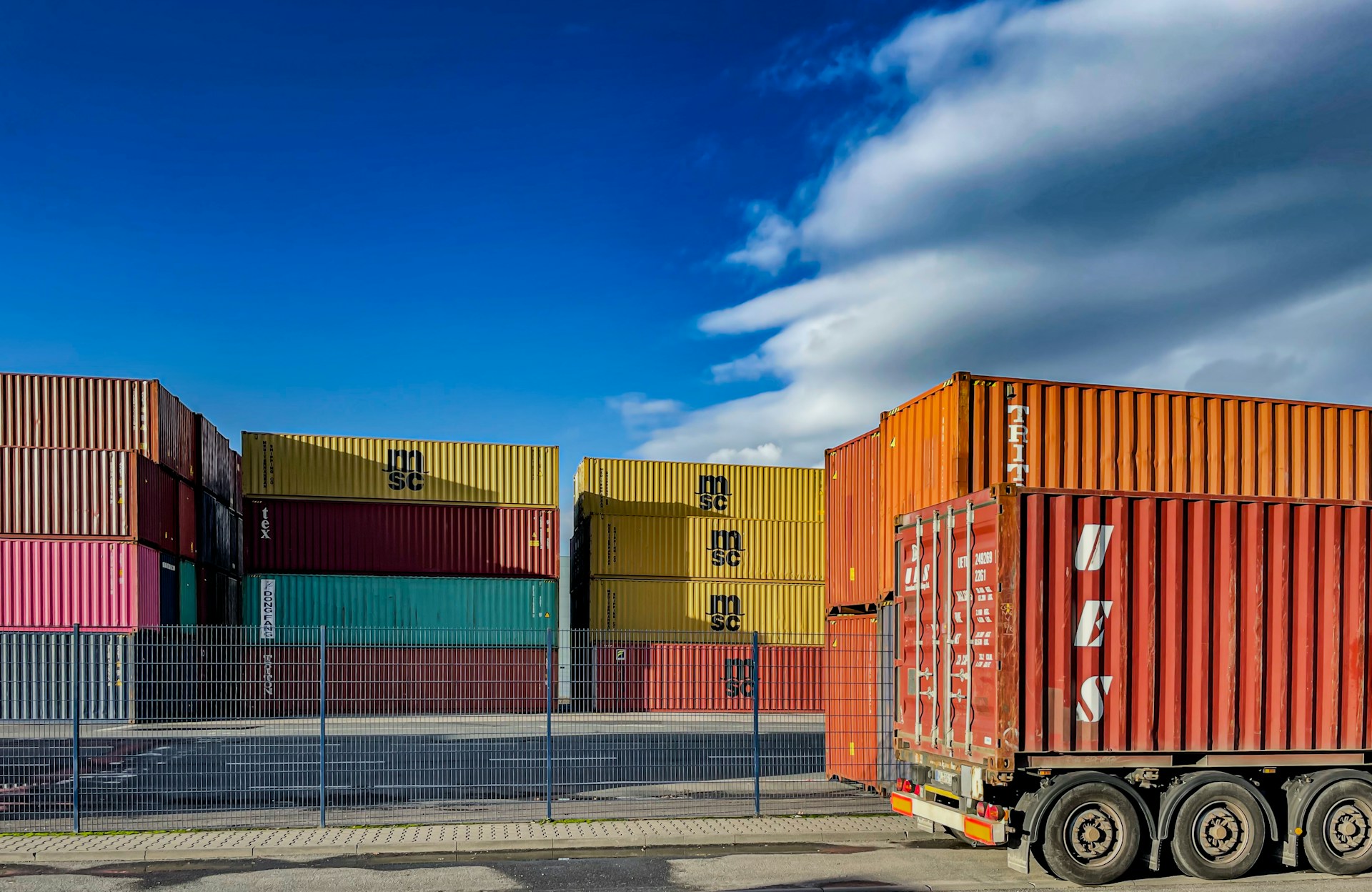How AI and SaaS Are Transforming Aviation Operations - And What It Means for Hiring
The aviation and aerospace industries are in the middle of a profound digital shift. Faced with rising operational costs, sustainability targets, supply chain pressure and stricter regulatory oversight, organisations across the sector are turning to AI-driven software and SaaS platforms to modernise the way they operate.
What makes this transformation different from previous technology waves is not just the scale of adoption, but the depth of integration. AI and SaaS tools are no longer sitting at the edges of aviation operations — they are becoming mission-critical.
From predictive maintenance and flight optimisation to compliance management and supply chain visibility, software is now central to performance, resilience and competitiveness.
AI in Aviation: From Reactive to Predictive
Historically, many aviation processes were reactive. Maintenance was scheduled at fixed intervals, disruptions were handled after the fact, and data was often fragmented across multiple systems.
AI is changing that model.
Predictive maintenance platforms now analyse data from aircraft sensors in real time, identifying patterns that indicate potential faults before they occur. This allows airlines and MRO providers to reduce unplanned downtime, improve safety outcomes and extend the life of critical components.
Similarly, AI-driven analytics tools are being used to:
- Optimise fleet utilisation
- Improve flight scheduling and turnaround times
- Reduce fuel consumption and emissions
- Identify operational bottlenecks before they escalate
These systems rely on vast amounts of data, sophisticated algorithms and continuous monitoring — all of which demand highly specialised technical expertise behind the scenes.
The Rise of SaaS Across Aerospace and Aviation
Alongside AI, SaaS adoption has accelerated across aerospace manufacturing, airline operations and aviation services.
Cloud-based platforms are replacing legacy, on-premise systems that were expensive to maintain and slow to adapt. SaaS solutions offer scalability, real-time collaboration and improved visibility across complex global operations.
In aerospace manufacturing, SaaS tools are being used to manage:
- Quality assurance and compliance
- Supplier coordination and logistics
- Engineering documentation and change control
For airlines and service providers, SaaS platforms enable faster decision-making and better integration between departments that historically operated in silos.
However, the shift to SaaS introduces its own challenges — particularly around security, system integration and regulatory compliance.
Why Technology Adoption Is Creating a Hiring Challenge
As AI and SaaS become embedded in aviation operations, the demand for specialist technology professionals has increased sharply. What organisations need today goes far beyond general software development skills.
Many roles now require a combination of:
- Strong software or data engineering capability
- Experience working in regulated or safety-critical environments
- An understanding of aviation operations, compliance or manufacturing processes
This combination is rare.
Aviation businesses are increasingly competing for talent with fintech firms, defence contractors and pure SaaS companies — many of which can move faster and offer simpler environments.
At the same time, hiring timelines in aviation are often longer due to background checks, compliance requirements and security clearance considerations. This can place additional pressure on teams already stretched by transformation projects.
Legacy Systems and the Complexity Gap
Another factor complicating hiring is the presence of legacy systems. While many organisations are modernising, few can afford full system replacements.
Instead, they require professionals who can integrate new AI-driven or SaaS platforms with existing infrastructure. This demands a deeper level of technical judgement and experience than greenfield development projects.
Candidates with this skillset are in particularly high demand — and short supply.
What This Means for Aviation Employers
Digital transformation in aviation is no longer optional, but its success depends heavily on people. Organisations that underestimate the importance of specialist hiring risk delayed projects, system inefficiencies and increased operational risk.
A targeted aviation recruitment approach allows businesses to:
- Access talent with proven sector experience
- Reduce hiring time for specialist roles
- Avoid costly mismatches between technology and operational realities
As AI and SaaS continue to reshape aviation, organisations that align their technology strategy with a realistic talent strategy will be best positioned to compete in an increasingly complex global environment.
Gatwick Expansion Set To Boost Recruitment Across Aviation, Aerospace And Supply Chain Sectors
£140 Million Pier 6 Development Brings Opportunity for Growth and Skilled Talent
Exciting developments are underway at London Gatwick Airport, as plans progress for the £140 million expansion of Pier 6. This major investment reflects a strong vote of confidence in the future of aviation and will have a positive knock-on effect for the aerospace and supply chain industries as well.
Gatwick’s Growth Plans
The Pier 6 extension will add eight new aircraft gates to the North Terminal, with completion expected in 2027. Once operational, this will enable an additional 7.5 million passengers per year to board directly at the terminal, eliminating the need for more than 12,000 annual coach journeys to remote stands. This will enhance both passenger experience and operational efficiency.
Contractor Mace, who originally delivered the iconic 197-metre airbridge in 2005, will lead the new construction work. The updated design will use a hybrid steel and timber frame and revised systems to reduce carbon emissions by 40%, reinforcing Gatwick’s commitment to sustainability and long-term resilience.
Opportunities Across the Sector
This project will generate demand across multiple disciplines. As the airport gears up for increased passenger volumes and more streamlined logistics, businesses operating within the ecosystem will need to scale accordingly. That means fresh opportunities in several areas:
- Aviation and Aerospace: Airlines, handling agents, and aviation service providers will likely require additional operations staff, ground crew, aircraft engineers, and technical specialists to support increased aircraft movements and turnaround demands.
- Supply Chain and Logistics: With a sharper focus on baggage handling, freight movement, and efficient routing within the airport, there will be rising demand for logistics planners & coordinators, warehouse managers, and supply chain specialists who can optimise performance and sustainability.
- Construction and Infrastructure: The delivery of the Pier 6 project itself will rely on a highly skilled workforce, with roles across project management, engineering, procurement, and environmental services playing a key role in the successful build.
Supporting Businesses and Professionals Alike
At Willis Global, we specialise in aviation & aerospace recruitment and supply chain sectors. We work closely with employers to build high-performing teams, but we also support talented professionals seeking their next role in these fast-moving sectors. The Gatwick expansion presents significant opportunity for both.
At Willis Global, we understand the dynamics of the sectors we recruit for. Whether you're an organisation preparing for expansion or a professional looking to take the next step in your career, we are here to support you.
For hiring company’s, we offer tailored recruitment solutions that help attract and retain the right talent for today’s challenges and tomorrow’s growth. For jobseekers, we provide access to exciting opportunities, expert guidance, and a genuine understanding of your industry and goals.
Bottom Line:
Gatwick’s investment in Pier 6 is more than a construction project. It’s a sign of renewed momentum for the UK’s aviation and aerospace industries, and a signal to businesses that now is the time to prepare for what lies ahead.
The next phase of growth will require skilled, adaptable people ready to step into key roles. Whether you're hiring or looking for your next opportunity, Willis Global is ready to help you move forward with confidence.
Looking to grow your team or explore a new role? Contact the Willis Global team today.
Top Countries Hiring Aerospace Talent Right Now
The global aerospace industry is experiencing significant growth, leading to increased demand for skilled professionals worldwide. Several countries stand out as prime destinations for aerospace talent due to their robust industries, competitive salaries, and strategic initiatives.
United States
The U.S. remains a powerhouse in the aerospace sector, hosting major players like Boeing, Lockheed Martin, and SpaceX. The country's emphasis on innovation and substantial defence spending create a wealth of opportunities for aerospace engineers and technicians.
Germany
Germany's aerospace industry, led by companies such as Airbus and MTU Aero Engines, continues to thrive. The nation's commitment to cutting-edge technology and strong research and development focus make it an appealing choice for aerospace professionals. Median salaries range from €50,000 to €70,000 annually, depending on experience and role.
United Kingdom
The UK boasts a rich aerospace history with companies like BAE Systems and Rolls-Royce. Aerospace engineers benefit from a well-established industry and a steady demand for skilled professionals. Major airports such as Heathrow, Gatwick, and Stansted serve as significant hubs for both passenger and cargo flights, contributing to the industry's vitality. Heathrow Airport, for instance, has ongoing recruitment for various roles, including pilots and engineering positions. Similarly, Gatwick Airport offers numerous opportunities, ranging from ground handling agents to engineering technicians. Stansted Airport collaborates with various partners to provide roles such as baggage handlers, cabin crew, and bus drivers.
Canada
Canada's aerospace sector is expanding, with projections indicating the need for 55,000 new workers to meet demand. Companies face challenges in recruiting skilled personnel for advanced manufacturing, design, and service positions. To address this, strategies include enhancing education and training, improving employee value propositions, and leveraging global talent acquisition.
India
India's aerospace industry is on the rise, with companies like RTX Corp planning to increase their workforce by 14%, adding 1,000 new positions by 2027. This expansion includes roles for engineers and positions at Collins Aerospace, highlighting India's growing importance as a talent hub in the aerospace sector.
These countries exemplify the dynamic landscape of aerospace recruitment, offering diverse opportunities for professionals seeking to advance their careers in this exciting field.
Why Choose A Career In Freight Forwarding?
The freight forwarding industry is the backbone of global trade, ensuring that goods are transported efficiently across borders. With international commerce continuing to grow, the demand for skilled professionals in this sector has never been higher. Whether you’re considering a career change or looking for your next opportunity, the freight forwarding industry offers exciting prospects, career stability, and long-term growth.
The Benefits of Working in Freight Forwarding
- Job Security & Industry Growth
Global trade is constantly expanding, and with it, the need for reliable logistics and supply chain solutions. The freight forwarding industry is resilient, with businesses continuously seeking skilled professionals to manage the movement of goods efficiently. As long as international trade exists, there will always be a demand for experts in this field.
- Diverse Career Opportunities
Freight forwarding is a dynamic industry with roles suited to a variety of skills and interests. Whether you’re analytical, customer-focused, or enjoy problem-solving, there’s a place for you in this sector. Some key roles include:
- Freight Forwarder (Air, Sea or Road) – Coordinating import and export shipments via air, sea or road and managing client logistics needs.
- Customs Broker – Ensuring goods comply with import/export regulations.
- Import / Export Manager (Air, Sea or Road) – Overseeing end-to-end import / export freight forwarding and operational efficiency whilst leading a team of import / export freight forwarders
- Key Account Manager – managing and developing relationships with key clients whilst overseeing operational efficiency
- Sales & Business Development – responsible for growing client bases by promoting the freight forwarding services of the company and expand global trade networks.
- Opportunities for Career Progression
Many professionals in the industry start in entry-level roles and quickly advance to management positions. With experience, dedication, and the right training, you can climb the career ladder in areas such as operations management, supply chain leadership, or even start your own logistics business.
- Exposure to International Business
The freight forwarding sector provides unique exposure to international markets. Working with suppliers, clients, and government agencies across different countries gives you invaluable insights into global trade, making it an exciting and rewarding career path.
- Competitive Salaries & Benefits
With the increasing demand for skilled professionals, competitive salaries and benefits are common in this industry. Many companies offer structured career development, training, and the opportunity to work with global brands.
Freight Forwarding Career Opportunities in Key UK Locations
Some of the UK’s busiest freight forwarding hubs include Heathrow, Felixstowe, Manchester, Birmingham, Essex, and Kent. These regions house some of the largest logistics and 3PL companies, offering exciting career opportunities for those looking to break into the industry or take their next step.
Bottom Line:
At Willis Global, we specialise in freight forwarding recruitment, helping professionals find their dream jobs and businesses attract the right talent. Whether you’re an experienced industry professional or looking to enter the sector, we have the expertise and connections to support your career journey.
Get in touch with us today to explore exciting opportunities in freight forwarding, logistics, and supply chain management!
How to Stand Out in the Competitive Aerospace Job Market
The aerospace industry is evolving rapidly, with new technologies and increasing global demand for skilled professionals. Whether you’re an engineer, pilot, or maintenance technician, standing out in this competitive field is essential. Here are some key strategies to help you enhance your career prospects in aviation and aerospace recruitment.
1. Build a Strong and Relevant Skillset
Aerospace employers look for candidates with both technical expertise and soft skills. To improve your marketability:
- Gain certifications relevant to your field, such as EASA Part 66 for aircraft maintenance engineers or PMP for project managers.
- Stay updated on emerging technologies like AI in aviation, sustainable fuel solutions, and unmanned aerial systems (UAS).
- Develop problem-solving and communication skills, which are highly valued by employers.
2. Tailor Your Resume for Each Role
A generic resume won’t capture an employer’s attention. Instead:
- Highlight industry-specific achievements and quantify your experience where possible.
- Include relevant keywords from the job description to pass applicant tracking systems (ATS).
- Emphasise your adaptability, leadership, and ability to work under pressure—key attributes in the aviation sector.
3. Expand Your Network
Networking is critical in aviation and aerospace. Here’s how to build meaningful industry connections:
- Join professional organisations such as the Royal Aeronautical Society or Women in Aviation International.
- Attend industry conferences and recruitment fairs.
- Engage on LinkedIn by sharing insights, commenting on posts, and connecting with professionals in your niche.
4. Prepare for Industry-Specific Interviews
Aviation job interviews often include technical assessments, problem-solving scenarios, and behavioural questions. To stand out:
- Research common interview questions in your field and practice concise, structured responses.
- Be ready to demonstrate knowledge of aviation regulations, safety procedures, and industry trends.
- Showcase real-world examples of your technical skills and experience in high-pressure environments.
5. Gain Hands-On Experience
Employers value practical experience, so:
- Consider internships, apprenticeships, or contract roles to build a strong portfolio.
- Work on aviation-related projects, such as aircraft restorations or drone programming, to showcase your technical skills.
- Volunteer for aerospace initiatives or mentoring programs to demonstrate passion and commitment to the industry.
6. Stay Adaptable and Open to Opportunities
The aerospace sector is constantly evolving, and flexibility can set you apart:
- Be open to roles that may not be your dream job but provide valuable experience.
- Consider opportunities in emerging markets, such as electric aviation or space technology.
- Keep learning through continuous education and professional development courses.
Final Thoughts
Standing out in the aerospace job market requires more than just technical skills; it’s about strategic career development, networking, and adaptability. By following these steps, you can position yourself as a top candidate and navigate your way to a successful and fulfilling aviation career.
Seven Supply Chain Trends to Watch in 2025
As we step into 2025, the supply chain landscape continues to evolve at a breakneck pace. Driven by technological advancements, changing consumer demands, and a volatile global economy, organisations must stay ahead of emerging trends to remain competitive. Here are seven supply chain trends that are poised to shape the industry this year:
- Increased Adoption of AI and Automation
Artificial intelligence (AI) and automation are no longer futuristic concepts but integral components of modern supply chains. In 2025, expect AI-powered demand forecasting, real-time inventory tracking, and predictive analytics to become even more sophisticated. Automation technologies like robotic process automation (RPA) and autonomous vehicles will streamline operations, reduce human error, and enhance efficiency across the board.
- Heightened Focus on Sustainability
Sustainability has shifted from being a buzzword to a core business imperative. With stricter regulations and growing consumer demand for eco-friendly practices, companies are investing in greener supply chain solutions. Carbon-neutral transportation, circular supply chains, and renewable energy-powered warehouses are just a few strategies businesses will leverage to reduce their environmental footprint.
- ESG and Scope 3 Responsibilities
In recent years, environmental, social and governance (ESG) requirements have placed immense demands on supply chain leaders, as the supply chain is a key avenue to meet organisational ESG targets and Scope 3 expectations. This responsibility is set to continue in 2025, but with even more on the agenda.
To begin, supply chain leaders will need to ensure they have a comprehensive understanding of the entire value chain. Leaders will need to identify, capture, and validate data on partners for ESG awareness, risk mitigation, and reporting. There will likely be demand to improve the human rights and other social implications of the supply chain, while also navigating the complex landscape of ESG-related regulations, such as the Carbon Border Adjustment Mechanism (CBAM), and the Corporate Sustainability Due Diligence Directive (CSDDD).
In 2025, there will also be expectations that supply chain leaders will turn ESG and Scope 3 challenges into opportunities for stronger business performance, and to be a competitive differentiator. Further, they will need to create a more circular economy, exploring how products can be returned, recycled or re-invented, so that the business takes more responsibility for the entire product lifecycle.
- Resilience Through Diversification
The disruptions of recent years have underscored the importance of building resilient supply chains. In 2025, organisations will focus on diversifying their supplier base and reducing dependency on single regions. Near-shoring and re-shoring strategies will gain traction as businesses aim to mitigate risks and enhance supply chain agility.
- Enhanced Supply Chain Visibility
Visibility remains a top priority for supply chain leaders. Leveraging advanced technologies like blockchain and IoT (Internet of Things), companies will achieve greater transparency across their networks. This will enable real-time tracking of goods, improved traceability, and faster response times to disruptions or changes in demand.
- Integration of Advanced Analytics
Data-driven decision-making is becoming the norm. Advanced analytics tools, powered by machine learning and big data, will enable companies to gain deeper insights into their supply chain operations. From optimising routes to analysing supplier performance, these tools will empower businesses to make informed decisions and drive efficiency.
- Evolving Consumer Expectations
The rise of e-commerce and digital platforms has transformed consumer expectations. In 2025, speed, personalisation, and convenience will remain key drivers. Supply chains will need to adapt to deliver faster shipping, seamless returns, and tailored experiences. Companies that prioritise customer-centric supply chain strategies will have a competitive edge.
Embracing the Future
The supply chain of 2025 will be defined by innovation, adaptability, and a commitment to sustainability. By embracing these trends, organisations can position themselves to thrive in an increasingly complex and dynamic global environment.
At Willis Global, we understand the challenges and opportunities that lie ahead. Here at Willis Global, we help you find talent in supply chain and logistics to grow your business in 2025. Contact us today to learn how we can support your growth by connecting you with the right professionals.
Leading Recruitment in the US Customs & Trade Compliance Industry
At Willis Global, we specialise in providing expert recruitment services to the Customs & Trade Compliance industry, with a focus on the US market. As international trade continues to expand and regulations evolve, the demand for professionals skilled in customs regulations, import/export management, and trade compliance has never been higher. For businesses navigating the complexities of global trade, finding the right talent is crucial to staying competitive and compliant—and that’s where we come in.
Why Customs & Trade Compliance Matters
The Customs & Trade Compliance sector is vital for companies involved in importing and exporting goods. With increasingly complex international trade laws, businesses must ensure that they adhere to all regulations to avoid costly fines, shipment delays, and reputational damage. This is particularly important in high-traffic areas like Laredo, Texas, a major hub for trade between the US and Mexico. As one of the busiest inland ports in the US, Laredo handles billions of dollars in imports and exports annually, making it a critical point of focus for our recruitment efforts.
Our Expertise in Laredo, Texas
At Willis Global, we have been working on numerous roles in Laredo, Texas, where the demand for skilled professionals in Customs Brokerage, Trade Compliance, and Import/Export Coordination is at an all-time high. Laredo’s unique position on the US-Mexico border makes it a key location for international trade, particularly for companies involved in automotive, electronics, and agricultural imports and exports.
With years of experience in the Customs & Trade Compliance industry, we understand the specific needs of businesses operating in this fast-paced, regulation-heavy environment. Our tailored recruitment solutions ensure that we source candidates with the right expertise to keep your operations running smoothly and in full compliance with both US and Mexican trade laws.
Roles We Recruit For
We specialise in filling a wide range of positions within the Customs & Trade Compliance sector, including but not limited to:
- Customs Brokers: Certified professionals who help navigate customs regulations and ensure that imports and exports are processed in compliance with all relevant laws.
- Trade Compliance Specialists: Experts who ensure that all company activities align with local and international trade laws, helping to mitigate risks and maintain legal standards.
- Import/Export Coordinators: Key professionals responsible for the seamless movement of goods across borders, ensuring that all documentation is accurate and shipments are handled efficiently.
- Logistics and Supply Chain Managers: Overseeing the entire process of moving goods from point A to point B, ensuring that everything from customs documentation to freight handling is optimised for efficiency and compliance.
How We Add Value
At Willis Global, we don’t just place candidates; we act as partners to both businesses and job seekers. For employers, we take the time to understand the unique challenges and opportunities within your organisation. This allows us to find candidates who not only meet the technical requirements of the role but also fit your company culture. For candidates, we offer expert guidance and access to top-tier opportunities in one of the fastest-growing sectors of the US economy.
Ready to Find the Right Talent?
As the demand for skilled professionals in Customs & Trade Compliance continues to rise, particularly in trade hotspots like Laredo, Texas, partnering with a trusted recruitment agency like Willis Global is essential. We are here to connect you with the talent you need to navigate the complexities of international trade and keep your business compliant and competitive.
Visit Willis Global today to learn more about how we can support your recruitment needs in the US Customs & Trade Compliance market. Whether you're seeking the perfect candidate or looking for your next career move, Willis Global is your partner in success.
The Role of Recruitment Companies in the Supply Chain and Logistics Industry
The Supply Chain and Logistics industry is the backbone of global commerce, ensuring that goods move seamlessly from manufacturers to consumers across the world. As these industries evolve, driven by technological advancements and changing consumer demands, the need for skilled professionals has never been greater. This is where recruitment companies play a crucial role, bridging the gap between employers seeking top talent and professionals looking for opportunities in this dynamic field.
Understanding the Challenges in Supply Chain and Logistics Recruitment
The Supply Chain and Logistics industry is complex and multifaceted, encompassing everything from procurement and inventory management to transportation and warehousing. As the sector continue to grow, so does the demand for a workforce that can navigate the intricacies of global supply chains, implement innovative solutions, and maintain efficiency under pressure.
However, recruiting for this industry comes with its own set of challenges:
- Specialised Skill Sets: The roles within supply chain and logistics often require specialised knowledge and skills. Whether it’s understanding the latest in supply chain technology or managing international trade compliance, finding candidates who possess the right expertise is essential.
- Talent Shortage: The rapid growth of e-commerce, coupled with global disruptions like the COVID-19 pandemic, has exacerbated the shortage of skilled professionals in the logistics sector. This shortage makes it difficult for companies to fill critical positions promptly.
- Evolving Job Requirements: As supply chain processes become more digitalised and automated, the skills required are also changing. Recruitment companies must stay ahead of these trends to ensure they are sourcing candidates with the right qualifications and experience.
How Recruitment Companies Add Value
Recruitment companies specialising in the Supply Chain and Logistics industry bring several advantages to the table:
- Industry Expertise: These recruitment firms have a deep understanding of the industry’s nuances. They know what employers are looking for and can match them with candidates who not only meet the technical requirements but also fit the company’s culture.
- Access to a Wider Talent Pool: Recruitment companies have extensive networks and access to passive candidates who may not be actively job-hunting but are open to new opportunities. This broader reach ensures that employers are presented with a diverse range of candidates.
- Efficient Hiring Process: With their industry knowledge and recruitment expertise, these companies streamline the hiring process, saving businesses time and resources. They handle everything from initial screenings to final negotiations, ensuring a smooth recruitment experience.
- Adapting to Industry Trends: As the Supply Chain and Logistics industry continues to evolve, recruitment companies are well-positioned to adapt to these changes. They stay updated on the latest industry trends and technologies, ensuring they recruit candidates who are not only relevant today but also ready for the challenges of tomorrow.
The Future of Recruitment in Supply Chain and Logistics
Looking ahead, the role of recruitment companies in the Supply Chain and Logistics industry will only become more critical. As the industry faces continued disruption from technological advancements and global events, the need for skilled, adaptable professionals will grow. Recruitment firms that specialise in this sector will be instrumental in ensuring that companies have the talent they need to navigate these changes successfully.
Partner with Willis Global for Your Recruitment Needs
At Willis Global, we understand the unique challenges of recruiting for the Supply Chain and Logistics industry. With our extensive experience and industry knowledge, we are committed to connecting businesses with the talent they need to thrive in today’s fast-paced world.
Explore our recruitment services at Willis Global and discover how we can help you build a workforce that drives success in the ever-evolving supply chain and logistics sector. Let us help you find the right talent to move your business forward.
UK Election Results and Their Impact on the Supply Chain and Logistics Industry: A Recruitment Perspective
The recent UK election has ushered in a new era of political leadership, promising significant changes across various sectors. For the supply chain and logistics industry, these changes could bring both opportunities and challenges. As a leading recruitment company, Willis Global is keenly aware of how shifts in government policies can influence the job market and industry dynamics. Here’s an in-depth look at what the election results might mean for the supply chain and logistics sector.
Policy Shifts and Their Implications
- Infrastructure Investment
The new government has pledged to boost infrastructure spending, a move that could directly benefit the logistics industry. Improved roads, railways, and ports will enhance the efficiency of goods movement, potentially reducing transportation costs and delivery times. This, in turn, will likely increase demand for skilled workers in construction, transportation, and logistics management roles.
- Trade Policies and Regulations
Changes in trade policies and regulations are expected as the new government renegotiates trade agreements and adjusts customs protocols. These adjustments could impact supply chain operations, especially for companies reliant on international trade. Recruitment for roles specialising in customs compliance, international logistics, and trade negotiation is likely to see an uptick as companies navigate the new regulatory landscape.
Labour Market Dynamics
- Skill Shortages and Training Initiatives
One of the perennial challenges in the supply chain and logistics sector is the shortage of skilled workers. The new government’s focus on vocational training and apprenticeships aims to address this issue. By investing in education and training programs, there is potential for a more robust pipeline of qualified candidates entering the workforce. For recruitment companies like Willis Global, this means a greater pool of talent to match with industry needs.
- Immigration Policies
Changes in immigration policies can have significant implications for the logistics workforce. The industry often relies on a diverse and international workforce, particularly in roles such as drivers, warehouse operatives, and seasonal staff. Any tightening or relaxation of immigration laws will directly impact the availability of these workers. Recruitment agencies will need to stay agile and adapt to these policy changes to ensure a steady supply of talent for their clients.
Technological Advancements
- Automation and Digitalisation
The new government has shown interest in promoting technological advancements and digitalisation across industries. For the supply chain and logistics sector, this could mean increased adoption of automation, AI, and other digital tools. While this presents opportunities for efficiency gains, it also necessitates a shift in the skill sets required. Recruitment will need to focus more on sourcing candidates with expertise in technology, data analysis, and digital logistics.
- Sustainability Initiatives
Environmental sustainability is high on the agenda, with the government pushing for greener practices across all sectors. This includes initiatives to reduce carbon emissions in transportation and logistics. Companies will need to adapt by implementing more sustainable practices, which could include electrifying fleets or optimising supply routes. As these changes take place, there will be a demand for roles focused on sustainability, environmental compliance, and green logistics solutions.
The Role of Recruitment Agencies
As these changes unfold, recruitment agencies like Willis Global play a crucial role in bridging the gap between supply and demand for talent. Our expertise in the supply chain and logistics sector positions us to help companies navigate these transitions smoothly. We provide insights into market trends, identify emerging skill requirements, and source the best candidates to meet evolving industry needs.
Conclusion
The UK election results mark the beginning of a transformative period for the supply chain and logistics industry. With new policies and initiatives on the horizon, the sector is set to experience significant changes. For companies and job seekers alike, staying informed and adaptable will be key. At Willis Global, we are committed to supporting our clients and candidates through these changes, ensuring a resilient and dynamic workforce ready to meet the challenges of tomorrow.
Stay connected with Willis Global for the latest updates and expert advice on navigating the evolving landscape of the supply chain and logistics industry. Visit Willis Global to learn more about our services and how we can assist you in this dynamic market.
The Netherlands: A Crucial Player in the Post-Brexit Supply Chain and Logistics Industry
The global logistics and supply chain industry has been experiencing significant shifts, especially in the wake of Brexit. Among the key players emerging from this transformation is the Netherlands, which has rapidly become a vital hub for logistics operations in Europe. This growth has been marked by the establishment of new offices, distribution centres, and an influx of investment into the country's logistics infrastructure. At Willis Global, we specialise in recruiting top talent for the logistics sector, recognising the Netherlands' pivotal role in shaping the future of supply chains in the post-Brexit era.
The Impact of Brexit on European Logistics
Brexit has brought about substantial changes in the way goods move between the UK and the European Union. With the imposition of new customs checks, tariffs, and regulatory requirements, businesses have had to adapt swiftly to maintain seamless operations. These changes have prompted many companies to reevaluate their supply chain strategies, seeking more efficient and reliable logistics hubs within the EU.
Why the Netherlands?
- Strategic Location: The Netherlands boasts a prime geographic location, serving as a gateway to Europe. Its proximity to major markets, coupled with excellent connectivity via road, rail, air, and sea, makes it an ideal logistics hub. The Port of Rotterdam, the largest port in Europe, and Amsterdam’s Schiphol Airport provide unparalleled access to international shipping and airfreight routes.
- Advanced Infrastructure: The Netherlands is renowned for its state-of-the-art infrastructure. With a comprehensive network of highways, railways, and waterways, the country offers efficient transportation solutions for goods moving across Europe. This robust infrastructure supports the rapid and reliable movement of goods, minimising delays and reducing costs.
- Favourable Business Environment: The Dutch government actively promotes a business-friendly environment, offering incentives for companies to establish operations in the country. Policies that encourage innovation, investment, and trade have made the Netherlands an attractive destination for logistics firms looking to expand their presence in Europe.
- Skilled Workforce: The Netherlands has a highly skilled and multilingual workforce, well-versed in the intricacies of international logistics and supply chain management. This talent pool is essential for companies seeking to navigate the complexities of post-Brexit trade and maintain efficient operations.
Growth and Development in the Dutch Logistics Sector
In recent years, the Netherlands has seen a surge in the establishment of new offices and distribution centres. Major global companies have set up operations in the country to leverage its strategic advantages. This growth has not only bolstered the Netherlands' position as a logistics powerhouse but also created numerous job opportunities within the sector.
Willis Global: Your Partner in Logistics Recruitment
At Willis Global, we understand the critical importance of recruiting the right talent to support the logistics and supply chain industry. Our expertise lies in identifying and placing top-tier professionals who can drive efficiency, innovation, and growth for your business. As the Netherlands continues to solidify its role as a key logistics hub in Europe, we are committed to connecting companies with the skilled workforce they need to thrive in this dynamic environment.
Conclusion
The Netherlands has emerged as a crucial player in the supply chain and logistics industry, particularly in the aftermath of Brexit. Its strategic location, advanced infrastructure, favourable business environment, and skilled workforce make it an ideal hub for logistics operations. At Willis Global, we are dedicated to supporting this growth by providing expert recruitment services tailored to the logistics sector. Let us help you find the talent that will propel your business forward in this evolving landscape.
For more information on how Willis Global can assist with your logistics recruitment needs, visit Willis Global.











